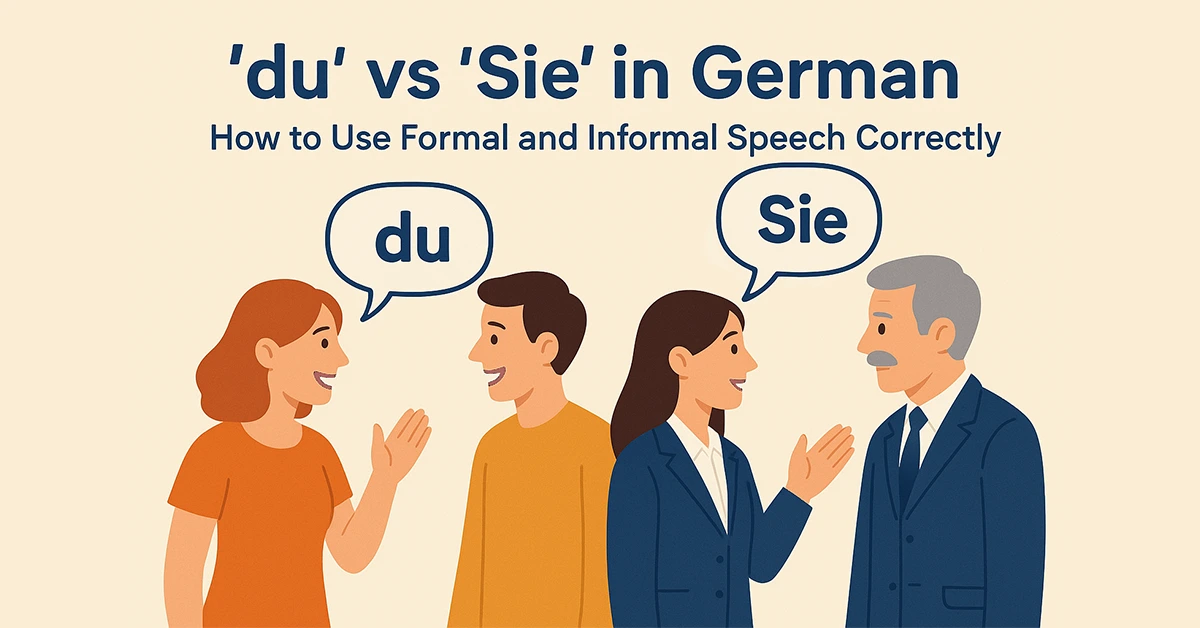speak German politely
-

“du” vs “Sie” in German – Formal vs Informal Speech Explained
Learn when to use “du” and “Sie” in German with real-life examples, grammar tips, and cultural insights. Master formal and informal speech with confidence!

Learn when to use “du” and “Sie” in German with real-life examples, grammar tips, and cultural insights. Master formal and informal speech with confidence!